This year, seven young scientists from Baden-Württemberg will be honoured for their work with a total value of 70,000 euros. The prizes are intended to encourage researchers during their early career phase and support their science.
The prizes will be awarded at the annual ceremony of the Heidelberg Academy of Sciences and Humanities on 24 May.

The Academy Award (internal link), donated by the Association for the Promotion of the Heidelberg Academy of Sciences and Humanities to mark the 75th anniversary of the founding of the Heidelberg Academy in 1984, will be awarded to PD Dr Marlon Barbehön in 2025. In the award-winning study, Barbehön focusses on the concept of ‘time’, which plays a major role in socio-political discourses such as sustainability or questions about the (correct) use of time. In addition to fundamental questions, an exploration of the construct of ‘time’, its terminology and relation to politics, the prizewinner uses his political theory of temporality to determine how social and political discourses influence our understanding of ‘time’ using case studies. Marlon Barbehön has been conducting research since April 2024 as head of a DFG
project at the Institute of Political Science at Heidelberg University.
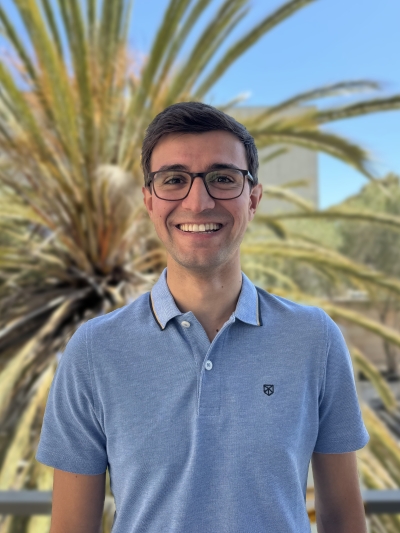
The Karl Freudenberg Award (internal link) was established by the global technology company Freudenberg Group in 1986 to mark the 100th birthday of Prof Dr Karl Freudenberg. It is awarded for scientific work in the field of natural sciences - in particular chemistry and biology.
This year, chemist Dr Maximilian Baur is being honoured with the Karl Freudenberg Prize for his dissertation at the University of Constance. The central topic of his dissertation is the incorporation of small amounts of keto groups into the polymer chain of polyethylenes during their catalytic synthesis. With his work, he has solved this challenge in research and thus made an important scientific step possible. Mr Baur achieved the breakthrough thanks to an intelligent catalyst design and suitable reaction conditions, which he made possible by constructing a customised reactor system. The molecular structure of the chains was elucidated by isotope labelling. In addition to these analyses, Mr Baur showed that his keto-modified polyethylenes are on a par with commercial polyethylene (HDPE) in terms of their processability and material properties. He also proved that his materials are degradable by light. This desirable property is relevant as it can reduce the problematic high persistence of polyethylene - the most widely used plastic - in the environment.
The Karl Freudenberg Prize (internal link) was established by the global technology company Freudenberg Group in 1986 to mark the 100th birthday of Prof Dr Karl Freudenberg. It is awarded for scientific work in the field of natural sciences - in particular chemistry and biology.
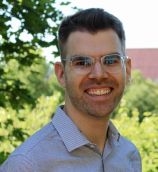
In view of the great importance of cultural and social science research, Witzenmann GmbH founded the Walter Witzenmann Award (internal link) in 1997 to promote young academics in Baden-Württemberg. The prize honours work that is dedicated to important social and cultural changes and/or the possibilities and effects of technological transformation and which, in the case of historical work, demonstrates a connection to the present. This year, theologian Dr Simon Linder (University of Tübingen) has been awarded the Walter Witzenmann Prize for his dissertation ‘A church in dispute in the digital present’. In it, the prizewinner draws on Michel Foucault's discourse analysis to develop a concept of ‘culture of dispute’ based on several recent church and non-church discourses. On this basis, he works out how synodality and a culture of debate can be shaped for theologians and the church in the digital age and tests his theory on current social and ecclesiastical events.
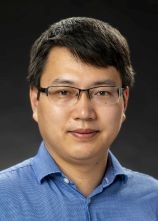
The Viktor & Sigrid Dulger Foundation's Ecology Award (internal link) is aimed at promoting scientific work in the humanities, social sciences, natural sciences and engineering that deals with environmental problems and their solutions.
One such environmental problem is large glass surfaces on houses, which may be modern and allow plenty of sunlight, but in addition to requiring considerable cleaning and reducing privacy, they are also energy inefficient and quickly overheat. Dr Gan Huang, who receives this year's award, has developed a new polymer-based metamaterial that protects against glare, repels water and dirt and, while allowing most sunlight through, does not heat up and remains on average 6°C cooler than its surroundings. This ground-breaking invention could become a key component of energy-efficient construction in the future. Huang is Principal Investigator of the Helmholtz Investigator Group and Head of the Hybrid Solar Technologies Lab at the Karlsruhe Institute of Technology.
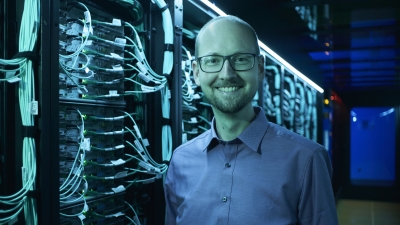
In order to encourage young scientists and ensure that outstanding scientific achievements receive the recognition they deserve, entrepreneur Dr Dr h.c. Manfred Fuchs has endowed a research prize to promote young scientists in Baden-Württemberg. In 2025, the Manfred Fuchs Award (internal link) will go to tenure-track professor Dr Pascal Friederich (KIT) for his work on the use of artificial intelligence in the development of new chemical materials. The background to this is the almost infinite number of possible materials that can be obtained by combining chemical substances and the great relevance of materials with application-specific properties. Friederich's promising approach is to combine existing knowledge and large amounts of data with machine learning and algorithms in order to not only develop suitable materials, but also to finely simulate their properties. This accelerates existing processes and has the potential to deliver solution-orientated chemical molecules and materials for new medicines or green technologies.

The prize, made possible by Manfred Lautenschläger through his foundation, specifically benefits the humanities and cultural studies, which he sees as orientation sciences for our present with a focus on history, society and culture. It is intended to be both a ‘recognition’ and a ‘motor’ for young researchers. This year's Manfred Lautenschläger Award (internal link) goes to Dr Maike Hausen for her dissertation in modern and contemporary history. She is head of the editorial department at the State Centre for Political Education in Stuttgart and a lecturer at the Universities of Tübingen and Mannheim.
In her dissertation, the historian analyses the consequences of Britain's decision in the 1960s to give up its military presence in Southeast Asia, which led to a perceived crisis in the former settler colonies of Canada, Australia and New Zealand. She analyses the subsequent national upheavals from a transnational perspective and is able to use this case study to identify central processes of the post-colonial period such as foreign and security policy reorientation and independent national policy.
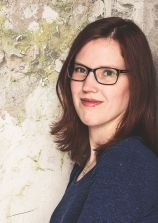
The prize, sponsored by the Hector Foundation, is aimed at young researchers in the field of computer science and is intended to encourage them by recognising their outstanding scientific achievements. The Hector Foundation Award (internal link) will be awarded in 2025 to Dr Annika Reinke for her outstanding research at the German Cancer Research Institute Heidelberg (DKFZ). At the DKFZ, she heads the ‘Validation of Intelligent Systems’ research group and is deputy head of the ‘Metrics Reloaded’ research project, which brings together a panel of 70 international experts.
Artificial intelligence (AI) is becoming increasingly important in medicine, especially in medical image analysis. However, without reliable quality controls, it remains unclear whether AI algorithms actually work in everyday clinical practice. This is where the ‘Metrics Reloaded’ research project comes in. It offers a comprehensive system for evaluating AI algorithms in medicine and beyond. Metrics Reloaded is an important step towards establishing standards for safe AI algorithms in medicine. It helps to ensure that AI-supported systems can be used reliably and safely in clinical practice in the future.

